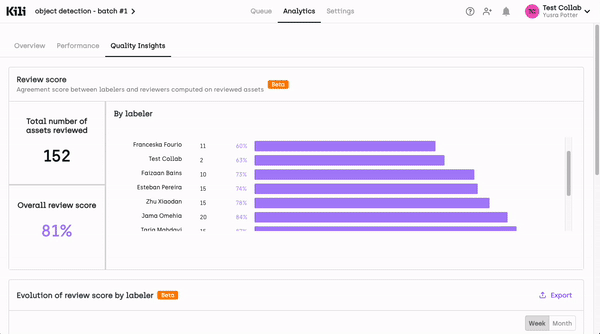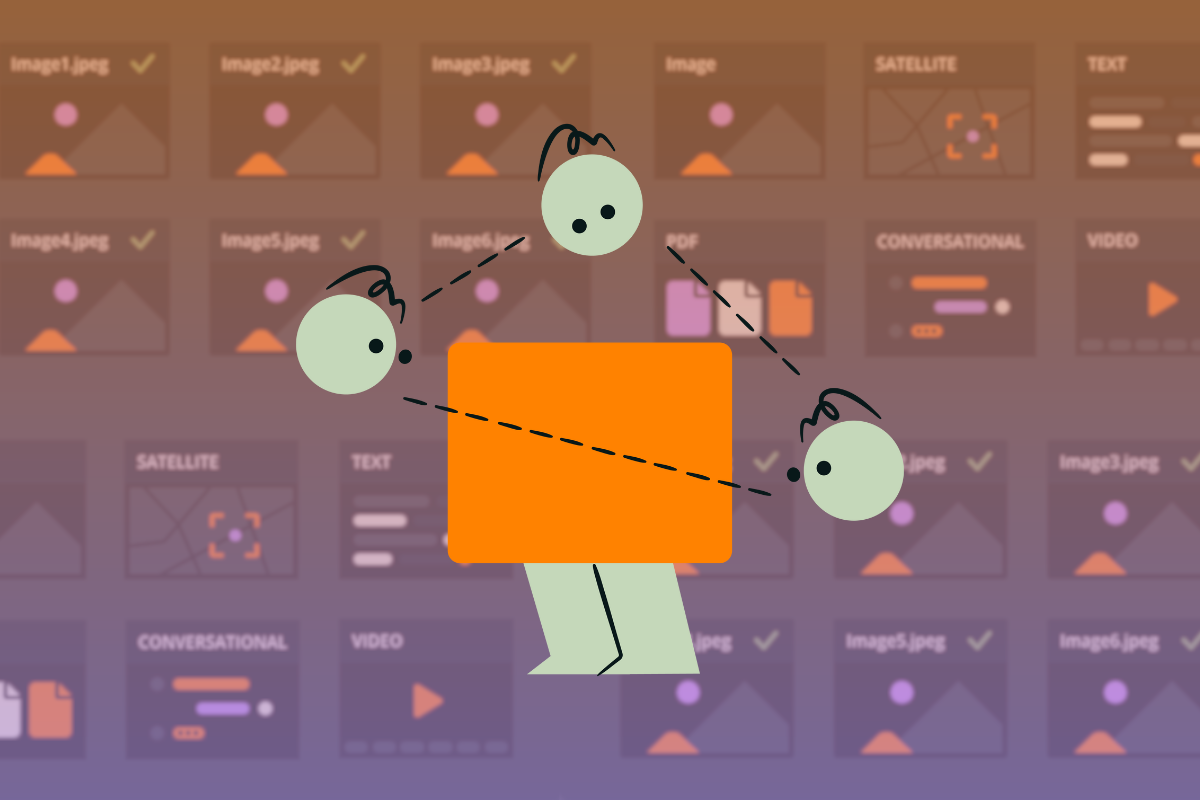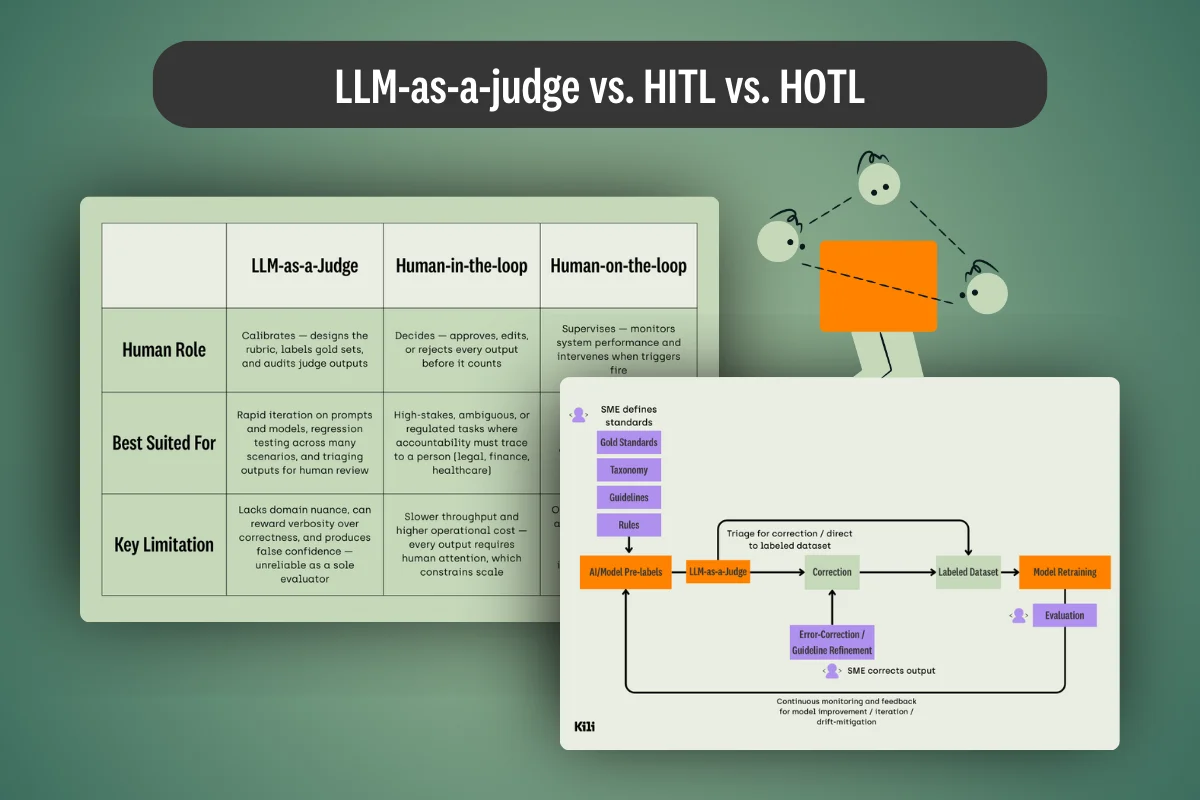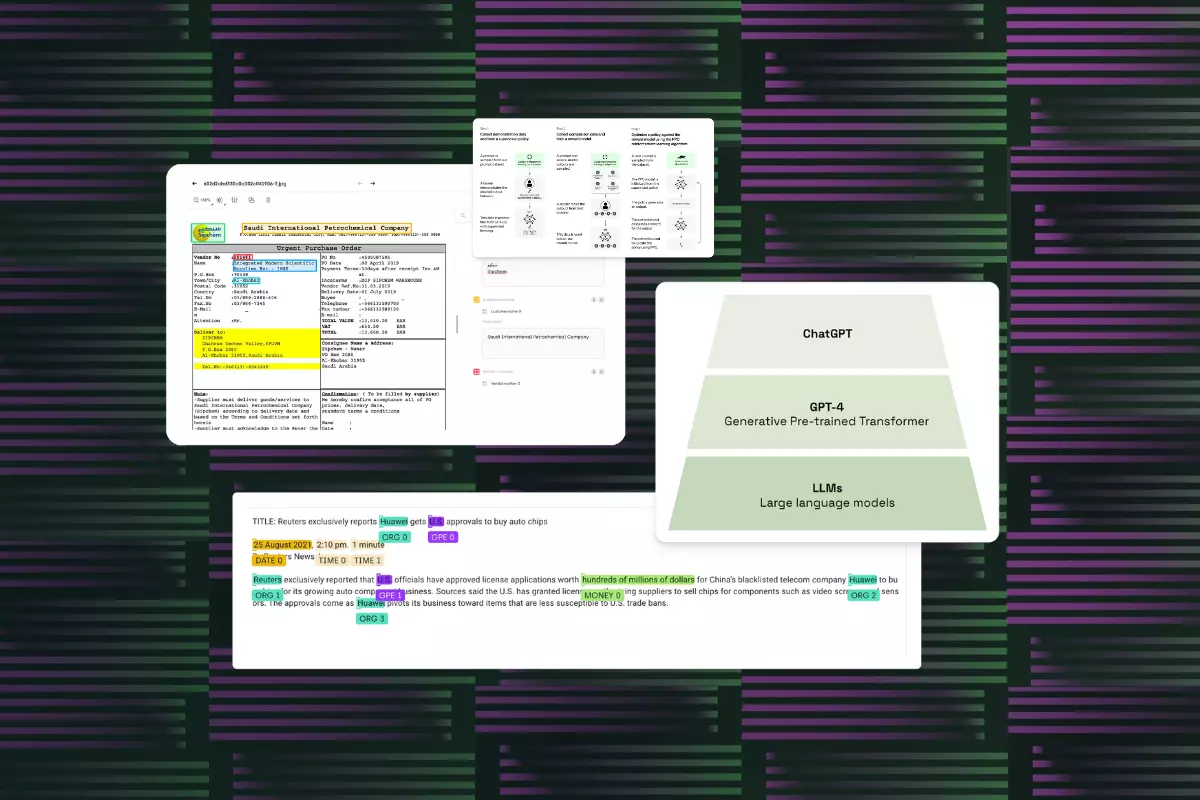Choose your data labeling service faster
Our handy comparison table is here to help you organize your shortlist of data labeling services and focus on key factors that matter.
Why should you outsource your data labeling ops?
Data labeling, the process of identifying raw data and tagging it with one or more labels, is critical for training machine learning models. These models learn from labeled data, discerning patterns, and making predictions.
Data labeling is essential for a wide range of machine learning and artificial intelligence (AI) applications, including but not limited to:
- Computer vision models: Data labeling trains computer vision models that recognize objects in images and videos such as faces, cars, and animals.
- Natural language processing: Data labeling trains models that can understand and process human language. For example, data labeling trains models that can translate languages, write creative content and answer questions.
- Speech recognition: Data labeling trains models that can recognize spoken language. For example, data labeling trains models that can transcribe human speech into text.
- Recommender systems: Data labeling trains models that can recommend movies, music, or products to customers based on their past purchases and browsing history.
However, having labeled data is insufficient to produce a good ML application. Focusing on the accuracy of labels is equally, if not more important than just the quantity of labeled data. A study on data labeling quality in the medical field outlines: "In medical systems, due to the special nature of medical data resources, labeling and screening require professional input from doctors at considerable cost. However, if these data cannot be used effectively, then resources are wasted."
Quality labeling directly influences the model's ability to make accurate predictions. Data scientists from the aforementioned study emphasized the following adverse effects:
- Inaccurate Models or Poor Generalization: Models trained with low-quality labels may be incorrect or generalize poorly outside the training sets.
- Increased Time and Resource Costs: Dealing with low-quality labels can lead to significant time and resource costs.
- Amplification of Worker Bias: There's a risk of models amplifying worker bias when trained with low-quality labels.
On the topic of bias, another study identifying key areas where bias can occur in NLP systems highlighted both data and annotations as a source of bias. Regarding annotations, the study highlights the subjectivity involved in the process, with annotator biases affecting outcomes. The study emphasizes the need for diverse and inclusive datasets and annotation practices to mitigate these biases, suggesting methods like employing annotators from varied backgrounds and increasing transparency in the annotation process.
Given the intensive labor and expertise required in data labeling, many organizations use data labeling services. A data labeling service provides the workforce and sometimes the technical tools necessary to process large volumes of data. They handle various types of data, including images, text, and audio, applying labels that categorize, describe, and make the data interpretable for AI systems. However, not all data labeling services are made equal, and choosing a service that ensures accurate data labeling is critical to ensure both the quality and cost of your machine learning models.
Key Factors to Consider When Choosing a Data Labeling Services
Selecting the right data labeling service is crucial for the success of any AI or machine learning project. The following key factors must be considered to ensure the service aligns with your project's needs.
Quality and Accuracy of Annotation

As we mentioned earlier, the cornerstone of any effective machine-learning model is the quality of its training data. When evaluating a data labeling service, inquire about its quality control processes. Look for services that employ multiple stages of review and validation to minimize errors. It's even better if the service uses a data labeling tool that monitors data in real-time. Skilled annotators and AI-assisted data labeling software can also help ensure accurate training datasets.
Scalability and Flexibility
AI projects often require processing vast amounts of data. The chosen service should be able to scale up operations without compromising on quality or turnaround time. This involves having access to a sufficient workforce and robust infrastructure.
AI projects vary greatly and can require a range of simple labeling tasks such as image classification to more complex and tedious ones such as video object detection. The ideal service should be experienced in offering various annotation types and be adept at customizing their approach to suit different data formats and annotation guidelines.
Speed and Efficiency
The speed at which a data labeling service operates can significantly affect the overall timeline of your AI project. Delays in data preparation can push back deployment schedules. Assess the average turnaround times and ensure they align with your project timelines.
Evaluate the technological capabilities of the service. Tools like automated labeling, machine learning-assisted annotation, and efficient workflow management systems can drastically reduce annotation time while maintaining quality.
Security and Confidentiality
Given the sensitive nature of many datasets, security should be a top priority. Data security should be non-negotiable in any AI project, with strict adherence to regulations like GDPR and HIPAA. Look for a service that uses a data labeling platform with robust data security measures such as secure hosting options, authentication protocols, and encrypted data storage. Choose a data labeling team that boasts strong security and safety credentials.
Evaluating Data Annotation Service Providers
Crowdsourced vs. Professional Labeling Services
Choosing between crowdsourced and professional data labeling services is a critical decision. Crowdsourced labeling often offers a cost-effective and scalable solution but may lack consistency and expertise. Data science teams must develop mitigation strategies to avoid the additional costs incurred by poorly labeled data if choosing to work with crowdsourcing service providers. On the other hand, professional services provide higher accuracy, expert annotators, and often better data security, albeit at a higher cost.
Researchers conducting a study on data quality from crowdsourcing had the following observations:
- Crowdsourcing for Predictive Models: Crowdsourcing is an efficient and cost-effective solution for acquiring annotations for constructing predictive models. However, crowdsourced workers might not be specifically trained for annotation and might not be deeply invested in producing high-quality annotations, leading to potentially noisy data.
- Comparison of Expert and Non-Expert Annotators: The study compared annotations from expert annotators at a research lab with those from non-expert annotators recruited from Amazon Mechanical Turk (AMT). While expert annotators showed higher agreement rates on sentiment codings, non-expert annotators had lower overall agreement, reflecting less reliability.
- Annotator-level Noise and Quality Measures: The study found that a subset of annotators tended to produce more noisy annotations. According to the researchers, "20% of the annotators who exceeded a certain noise level resulted in annotations with 70% disagreement with the gold standard."
Comparison Table of Data Labeling Services
With the myriad of data labeling services available globally, comparing and choosing the best service for your project can be overwhelming. A comparison table with the criteria we mentioned in this article will be helpful when shopping for data labeling workforces. We've prepared a simple but comprehensive table to use so you can shortlist and choose the best option from the hundreds of services available.
Choose your data labeling service faster
Our handy comparison table is here to help you organize your shortlist of data labeling services and focus on key factors that matter.
Conclusion
Selecting the right data labeling service is a pivotal decision in the journey of developing effective and efficient machine learning models. As we have explored, key factors such as the quality and accuracy of annotation, scalability and flexibility, speed and efficiency, and security and confidentiality play critical roles in determining the suitability of a data labeling service for your project.
By choosing a data labeling service that guarantees high-quality, accurate, and secure data annotation, you set the stage for the development of robust, reliable, and effective AI systems.
Hopefully, our excel template can be a handy guide as you search for the best data labeling service. Additionally, we invite you to share your needs with our team so we can provide you the best solution for your ML project.
Additional Resources
Data Quality from Crowdsourcing
Iterative Quality Control Strategies for Expert Medical Image Labeling
Five sources of bias in natural language processing
Outsourcing Data Labeling: Professional Workforce vs. Crowdsourced Annotation
Investing in Data Quality: The Cornerstone of Successful AI Projects

.png)

_logo%201.svg)




